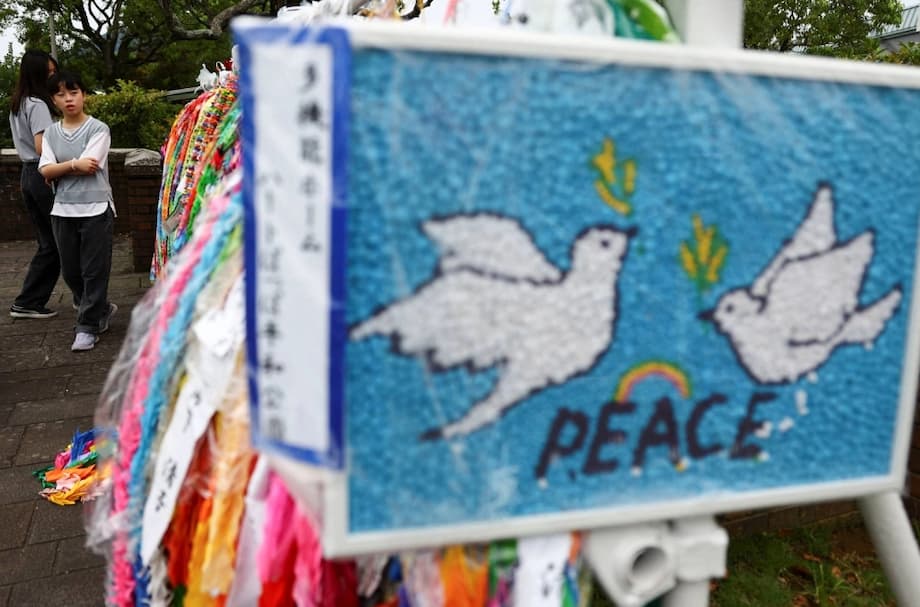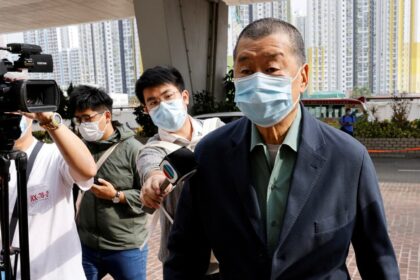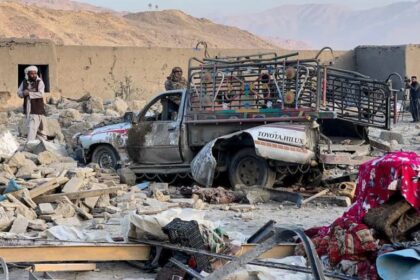Japan’s High Ranking in the 2025 Global Peace Index: A Beacon of Stability in Asia
Japan has once again secured its place as one of the most peaceful nations in the world, ranking 12th globally and third in the Asia-Pacific region according to the Global Peace Index (GPI) 2025. This annual report, produced by the Institute for Economics and Peace (IEP), evaluates 163 countries on a comprehensive set of 23 indicators, ranging from levels of violence and crime to political stability, militarization, and relations with neighboring countries. In a year marked by rising global tensions and a continued decline in overall peacefulness, Japan’s steady performance stands out as a testament to its enduring commitment to safety, order, and effective governance.
Understanding the Global Peace Index
The Global Peace Index is widely regarded as the world’s leading measure of national peacefulness. It assesses countries across three main domains:
- Societal Safety and Security: Measures crime rates, perceptions of criminality, and the likelihood of violent demonstrations.
- Ongoing Domestic and International Conflict: Evaluates deaths from conflict, relations with neighboring countries, and involvement in external conflicts.
- Militarization: Considers military expenditure, access to weapons, and the presence of nuclear or heavy weaponry.
Each indicator is carefully selected by an expert panel, and the results are used by policymakers, researchers, and the public to understand trends in global peace and security.
Japan’s Position in Asia and the World
In the 2025 GPI, Japan is ranked as the third-most peaceful country in the Asia-Pacific region, trailing only behind New Zealand and Singapore. Globally, it holds the 12th position, a testament to its consistently high scores in safety, low crime rates, and political stability. This ranking is particularly notable given Japan’s proximity to some of the world’s most significant geopolitical flashpoints, including the Korean Peninsula and the East China Sea.
Singapore leads Asia, ranking sixth globally, thanks to its strict law enforcement, low crime rates, and high levels of public order. New Zealand, often celebrated for its natural beauty and social cohesion, is the most peaceful country in the Asia-Pacific and third worldwide. Malaysia also features prominently, ranking 13th globally and further highlighting the region’s relative stability compared to other parts of the world.
Japan’s high ranking is not a new phenomenon. The country has consistently been among the top performers in the GPI for over a decade, reflecting deep-rooted cultural values of harmony, respect for law, and a strong social contract between citizens and the state.
What Makes Japan So Peaceful?
Several factors contribute to Japan’s reputation as a peaceful nation:
- Low Crime Rates: Japan is renowned for its exceptionally low rates of violent crime. Homicide and robbery are rare, and the country’s cities are considered some of the safest in the world for residents and visitors alike.
- Strict Weapon Laws: Japan has some of the world’s strictest regulations on firearms and other weapons, contributing to its low incidence of gun-related violence.
- Effective Law Enforcement: The Japanese police force is highly trusted, visible, and proactive in maintaining public order. Community policing and neighborhood patrols foster a sense of safety and trust.
- Political Stability: Japan enjoys a stable political environment, with low levels of corruption and a robust democratic system. This stability underpins social cohesion and public trust in institutions.
- Strong Social Norms: Cultural values emphasizing respect, harmony, and group consensus play a significant role in discouraging anti-social behavior and promoting peaceful coexistence.
These factors combine to create an environment where both residents and tourists feel secure. In 2025, Japan welcomed nearly 11 million tourists in the second quarter alone, many of whom cited safety as a key reason for their visit.
Comparisons with Other Asian Countries
While Japan ranks highly, it is not the only Asian nation to be recognized for its peacefulness. Singapore, as mentioned, is the region’s leader, praised for its urban safety, strict laws, and efficient public services. Malaysia, at 13th globally, continues to improve its security environment, particularly in tourist areas. South Korea and Indonesia have also made progress, with Indonesia recording significant gains against terrorist organizations and no major attacks outside West Papua in recent years.
However, not all countries in the region share this positive trajectory. Myanmar, for example, remains the least peaceful country in the Asia-Pacific due to ongoing civil conflict following the 2021 military coup. Taiwan, while relatively stable, ranks 40th globally, reflecting the complex security environment in East Asia.
Global Trends: Peace Under Pressure
The 2025 Global Peace Index paints a sobering picture of the world’s security landscape. Global peacefulness has declined for the ninth consecutive year, with 94 countries deteriorating and only 66 improving. The average level of peace dropped by 0.36% compared to the previous year, and many indicators that precede major conflicts—such as political instability and militarization—are at their highest levels since World War II.
Key findings from the 2025 GPI include:
- Rising Conflict Deaths: Over 152,000 people died in conflicts in 2024, with Ukraine, Palestine, and Russia accounting for the majority of these casualties.
- Increasing Displacement: The number of refugees and internally displaced persons reached 122 million, with 17 countries having at least 5% of their population displaced.
- Economic Impact: Violence cost the global economy nearly $20 trillion in 2024, representing over 11% of global GDP. Military spending accounts for almost half of this figure.
- Fragmentation of Power: The number of influential countries has nearly tripled since the end of the Cold War, leading to a more fragmented and unpredictable global order.
Europe remains the most peaceful region, hosting eight of the top ten countries, while the Middle East and North Africa are the least peaceful. The Asia-Pacific, despite some setbacks, is the second most peaceful region globally.
The Top 10 Most Peaceful Countries in 2025
The GPI’s top ten for 2025 are:
- Iceland
- Ireland
- New Zealand
- Austria
- Switzerland
- Singapore
- Portugal
- Denmark
- Slovenia
- Finland
These countries share common traits: low crime rates, political stability, strong institutions, and high levels of social trust. Japan, while just outside the top ten, exhibits many of these same characteristics.
Japan’s Resilience Amid Regional and Global Challenges
Japan’s high ranking is particularly impressive given the complex security environment in East Asia. The country is geographically close to North Korea, which continues to conduct missile tests and maintain a large military arsenal. Territorial disputes in the East China Sea and ongoing tensions between China and Taiwan also contribute to regional uncertainty.
Despite these challenges, Japan has managed to maintain a peaceful society through a combination of diplomatic engagement, strong alliances (notably with the United States), and a constitution that renounces war as a means of settling international disputes. Article 9 of the Japanese Constitution, often referred to as the “peace clause,” has played a central role in shaping the country’s postwar identity as a pacifist nation.
Japan’s Self-Defense Forces are among the most advanced in the world, but their role is strictly defensive. The country invests heavily in disaster preparedness and civil protection, further enhancing its reputation for safety and resilience.
Tourism and Public Perception
Japan’s reputation for safety is a major draw for international tourists, particularly solo and female travelers. The country’s efficient public transport, clean streets, and courteous society make it an attractive destination for those seeking peace of mind while exploring new cultures.
According to travel industry reports, Japan consistently ranks among the top choices for safe travel in Asia, second only to New Zealand in some surveys. Tourists frequently cite the ability to walk alone at night, the absence of aggressive street crime, and the general helpfulness of locals as reasons for their positive experiences.
Broader Implications: Why Peace Matters
The benefits of living in a peaceful society extend far beyond the absence of violence. Research shows that peaceful countries enjoy higher levels of economic prosperity, better health outcomes, and greater overall happiness. Japan’s experience illustrates how peace and stability can underpin social progress and national well-being.
Peaceful societies are more likely to attract foreign investment, foster innovation, and provide opportunities for education and personal development. The economic cost of violence is staggering—nearly $20 trillion globally in 2024 alone—underscoring the importance of policies that promote conflict resolution, social cohesion, and effective governance.
Japan’s example demonstrates that peace is not merely the result of geographic isolation or historical accident. It is the product of deliberate choices: investing in education, building strong institutions, upholding the rule of law, and nurturing a culture of respect and mutual understanding.
In Summary
- Japan ranks 12th globally and third in the Asia-Pacific region in the 2025 Global Peace Index, reflecting its high levels of safety, political stability, and social cohesion.
- The Global Peace Index evaluates 163 countries using 23 indicators across societal safety, conflict, and militarization.
- Singapore leads Asia at sixth globally, with New Zealand and Malaysia also ranking highly.
- Japan’s peacefulness is attributed to low crime, strict weapon laws, effective policing, and strong cultural norms.
- Global peacefulness has declined for the ninth consecutive year, with rising conflict deaths, displacement, and economic costs.
- Japan’s resilience amid regional tensions highlights the importance of diplomacy, defensive security, and a pacifist constitution.
- Peaceful societies like Japan enjoy economic prosperity, social trust, and high quality of life, serving as models for the world.












